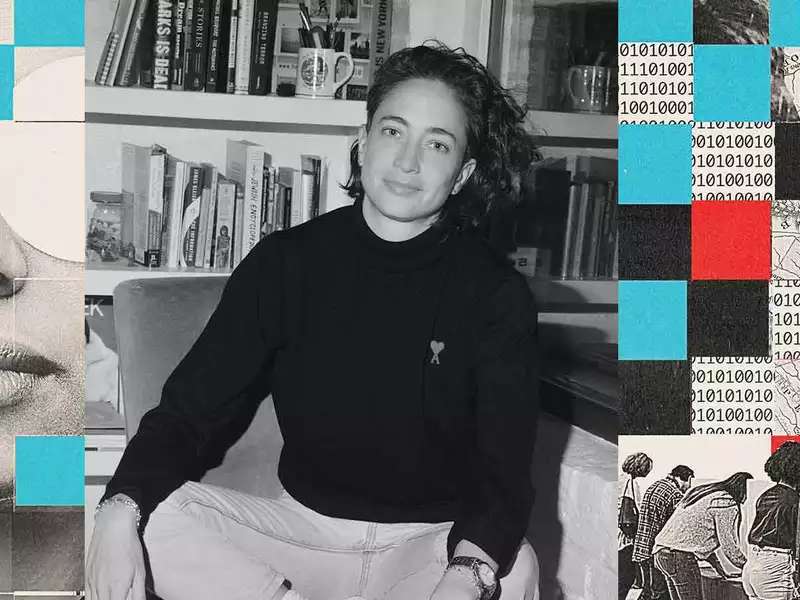
Paola Ramos ’09 explains why Latino voters must be better understood
Queer families have woven themselves into the fabric of urban life in coastal cities like New York City and Portland, Oregon. But what is it like today to live as a queer family in the middle of the United States? In the new documentary We Live Here: The Midwest, airing now on Hulu, director and co-producer Melinda Maerker ’87 sets out to answer the question through the stories of five queer families living in America’s heartland.
While the small-town charm is similar across the states for these families, their experiences differ. The film opens in Iowa with a trans/queer family seeking a new community after being ousted from their church. While day-to-day suburban existence isn’t always easy for the trans/queer parents, the children seem to hold a “no big deal” attitude. Then there’s a Black gay couple with a baby daughter in Nebraska, who, surprisingly, find friendship and acceptance with a Trump-voting family living down the street.
A gay educator in Ohio makes school a safe space for LGBTQ+ students, while the child of one lesbian couple in Kansas recalls dealing with aggressive bullying in school. And we meet a nonbinary kid whose classmates don’t believe people like them are even a real thing: “I mean, I’m here right now, so we do kinda exist.”
The local bullying often parallels a deeper and more disturbing form of rejection. Minnesota state representative and queer mother Heather Keeler faces death threats but continues to bring LGBTQ+ issues to the forefront. “Marriage equality did a lot for us,” she says. “I think though, now, we’re missing the acceptance of the family structure, what our legal rights are with families. ... I think we have a long ways to go to be really accepting there.”
Amid this pervasive theme of the Midwest’s resistance to change, viewers see acceptance in real time as Maerker follows each family for about a month and simply lets them do their thing. “Finding these families was a long process and involved everything from joining social media groups to personal referrals through family and friends,” Maerker says. “A few families were unable to participate because they feared recrimination at their jobs or in their communities. We refer to our families as courageous first and LGBTQ+ second.”
Why the Midwest? Maerker, who was born in Ohio and raised in the Southwest, decided to make it the focal point of this film because “it’s considered the heartland of American family values — a term that has been co-opted by many on the right. Yet at its core, [American family values] is a lovely, universal concept that means, among other things, being kind and helpful to your neighbors,” she says. “So it’s rather ironic that LGBTQ+ families are often excluded from this inclusive term. We wanted to explore that in a story-driven, authentic way.”
As viewers are invited into the families’ worlds, they gradually see a love that runs deep, not just for each other but for the communities they want to stay a part of.